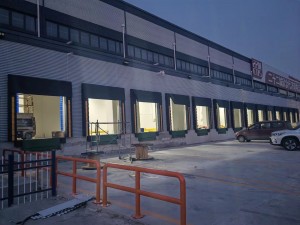A functioning garage door not only enhances the exterior appeal of your home, but also keeps your belongings safe. However, like any other mechanical component, garage doors are prone to wear, accidents, and the elements that can cause damage. In this situation, homeowners often wonder if the damaged garage door can be repaired, or if replacement is inevitable. In this blog, we’ll delve into the topic and explore possible options for repairing your damaged garage door.
1. Assess the extent of damage:
Properly assessing the extent of the damage is critical before making any decisions. Minor issues like dents, broken springs, or misaligned tracks can often be repaired, but severe structural damage may require a complete replacement. It is recommended to contact a professional garage door repair service to accurately determine the feasibility of repairs.
2. Common problems and maintenance of garage doors:
a) Dented panels: Small dents or imperfections in garage door panels can often be repaired. There are a variety of DIY dent removal techniques available, but it is advisable to consult a professional to ensure the repair is done properly.
b) Broken springs: Garage door springs are under enormous tension and can pose a safety risk if not handled properly. Replacing damaged springs is a common repair job for professionals and can extend the life of your garage door without requiring a complete replacement.
c) Misalignment of tracks: Garage doors that are off track can become a safety hazard and cause further damage while operating. Professionals can realign the track and ensure smooth operation.
d) Sensor failure: Garage door sensors are designed to detect obstacles and prevent accidents. If the sensor is not working properly, the door may not operate effectively. In most cases, recalibrating or replacing the sensor will solve the problem.
3. When to consider replacement:
While many garage door problems can be repaired, in some cases a complete replacement is required. These include:
a) Extensive structural damage: If the door suffers severe damage, such as a bent or twisted frame, repairing it may compromise safety and durability. In this case, a new door is a safer and more cost-effective option.
b) Outdated Technology: Older garage doors may lack modern security features and insulation, making repairs uneconomical. Upgrading to a new energy-efficient door can save you money in the long run, especially if you use your garage as storage space or as a living space.
c) Frequent breakdowns: If your garage door continues to have problems or needs repairs, it may be more cost-effective to invest in a new door, eliminating the inconvenience and expense of frequent repairs.
All in all, a damaged garage door can often be repaired, but the feasibility depends on a number of factors including the extent of the damage, the age of the door, and the cost-effectiveness of the repair. Consulting a professional and getting expert opinion is essential to making an informed decision. Regular maintenance and timely resolution of minor issues can significantly extend the life of your garage door and reduce the need for major repairs or replacements. Remember, safety is always the top priority when servicing your garage door, so it’s imperative to seek professional help when needed.
Post time: Jun-30-2023

